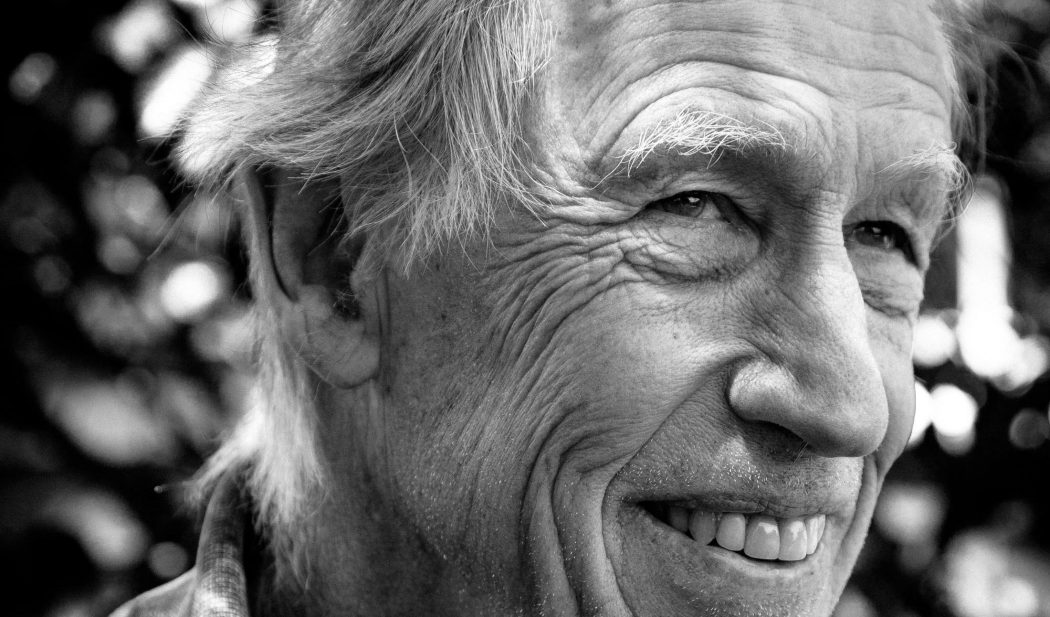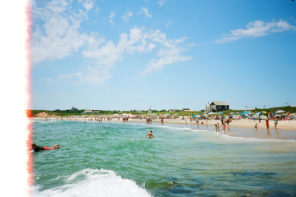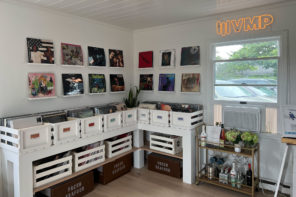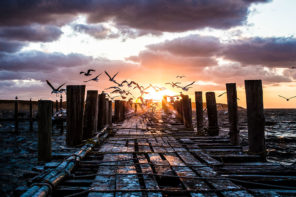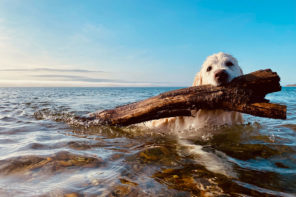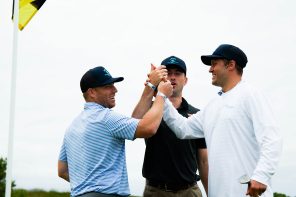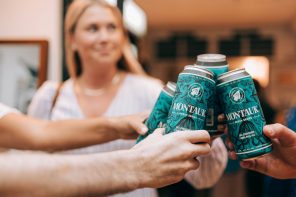When Whalebone Magazine asked me to interview someone, I chose Bill Akin. Not only has Bill given so much back to the community, which he loves dearly, but his history of big game fishing off Montauk Point in the 50s and 60s has produced some incredible stories. After hearing many of them, I decided I wanted to explore further.
Grant Monahan: What brought you to Montauk?
Bill Akin: My father was an avid sport fisherman in the early 1950s. He had a house in Westhampton and kept driving out to Montauk to fish with some of the charter boat guys. He bought a sport fishing boat in 1951, and by 1956, he bought a house. It was all about sport fishing; that is all we were focused on. It was wonderful being at the Yacht Club, which was a fascinating place back then, and very active. The sport fishing world was a wonderful group of people that really enjoyed what they were doing, and the fishing was excellent.
GM: What would you say is the biggest difference in fishing between now and then?
BA: The ocean is a different place now. We did most of our big game fishing—that’s swordfish and white marlin—which you don’t even see anymore within five to ten miles of the lighthouse. The giant bluefin tuna, 400 to 700 lbs., we were running over to the Rhode Island coast. The fish were a mile off the beach feeding on bottom fish; there were tons of them. That just doesn’t exist anymore. Everyone runs off to the canyon, and I presume the fishing can be really good, but that is something I am just not interested in doing.
The giant bluefin tuna, 400 to 700 lbs…a mile off the beach feeding on bottom fish; there were tons of them. That just doesn’t exist anymore.
GM: When did you first get hooked on fishing?
BA: I loved it from the time I was five years old. I struggled to hold a blue fishing rod under my armpit with both hands and put my body up against the gunnel just to hang on. From then till when I started surfing, fishing was the number one activity.
GM: What made you make the switch from fishing to surfing?
BA: Surf and girls… not necessarily in that order. There were more girls on the beach than there were 30 miles offshore.
GM: What was your best fish caught off of Montauk?
BA: Probably my last swordfish, in 1965, a 423-pound fish. We had just put new engines in the boat and the captain and I took the boat out to the lighthouse to see how the engines worked. It was a beautifully flat, calm day in middle June. We had a couple baits on the boat, so we ran a little offshore of what people call Frisbee’s. We saw the swordfish fins on the surface, put the baits out and the two of us caught this 423-pound swordfish.
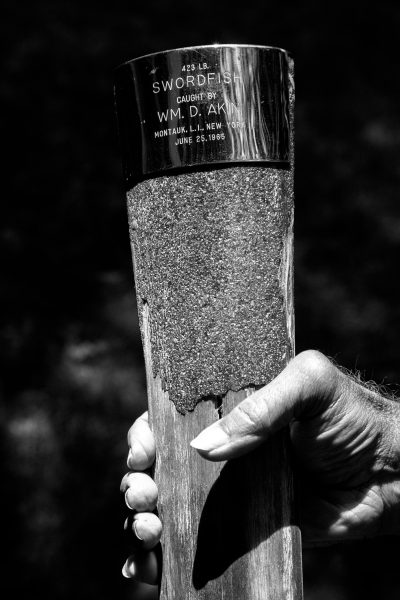
Photo: Grant Monahan
GM: I know for a long time people harpooned or “sticked” swordfish because it was a high-value fish. What caused the change for people to start sport fishing for them?
BA: The boats at the Yacht Club were part of a summer-long tournament, and you were not allowed to join that tournament if you had a harpoon on your boat. So, from the private boats’ point of view, sticking swordfish was not even considered. The charter boats still did it because it was good money. My father was an avid sports fisherman but was good friends with Ralph Pitts and most of the charter boat guys. He convinced them that there really was a benefit to promoting rod and reel sword fishing. He even started a program where he gave them plaques at the end of the year with the weight of each fish they caught on rod and reel. The guys were really appreciative of that and it caught on.
GM: Was there ever a big swordfishing tournament?
BA: When the Yacht Club more-or-less shut down to the private boats and they all moved over to the Deep Sea Club in 1960, the swordfishing was so good and so popular that in ’62 or ’63, the Club sponsored an international peoples to peoples swordfishing tournament. There were teams from South Africa, New Zealand, the Virgin Islands, California, a couple of Montauk teams… I am probably missing some. It was a two-day event, a reception dinner at Gurney’s, activities for the wives, great trophies and we caught a bunch of fish! In those two days we probably caught twelve swordfish, which was considered a radically successful tournament. That is just inconceivable now.
GM: On the subject of tournaments, what is the story I have heard you tell about the bluefin tournament in Rhode Island?
BA: Right after they discovered the bluefin off the coast of Rhode Island, they held a tournament out of Montauk for one or two years, sometime in the early ‘50s. I know in ’54 they moved it to the harbor in Point Judith. That was the year Hurricane Carol did a huge amount of damage to the area. There were 85 boats tied up at that tournament, just stacked into these finger piers like they shouldn’t be to begin with. The next day after the storm, only 12 boats ran on their own power, and I think nine of them were captains from Montauk. We were fortunate enough that our captain got our boat away from the dock because it was just a catastrophe.
The next year, there was a hurricane threat and everyone turned back. The year after that, they moved the tournament from September to August to avoid the hurricane season. The first day they caught three fish, which everyone thought was great. The next day they caught 15 fish, all 400 lbs. plus. The third day the fleet caught upwards of 20 fish. There is a picture I have of the 30-40 fish hung up on the last night of the tournament, but what no one mentions is that those fish were stored dockside in semi-trucks with no refrigeration at all. There was no market for giant bluefin tuna. The next day the trucks took all the tuna to a cat food factory
GM: Millions of dollars worth of fish…
BA: In today’s bluefin market, you might even be able to buy a house in Montauk with that. [Laughs]
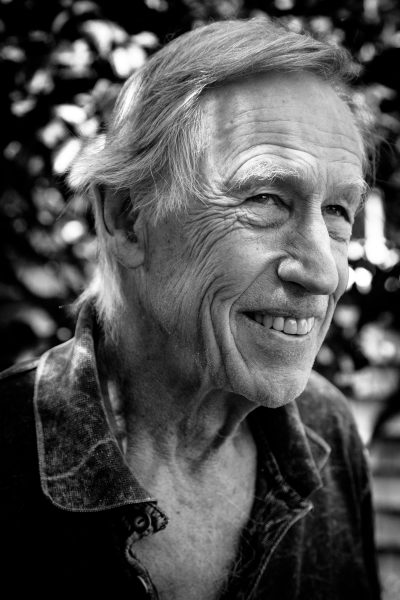
Photo: Grant Monahan
GM: What would you consider your biggest accomplishment in fishing?
BA: At the time, it was considered somewhat of a fishing accomplishment to catch the four biggest Atlantic game fish: white marlin, blue marlin, swordfish and giant bluefin tuna. I managed that before I could drive a car. Ridiculously fortunate to have had the opportunity, but even more so to have fished when the ocean was so alive.
For more legendary tales from East End’s past, dive into the rest of the Beginning of the End series:

